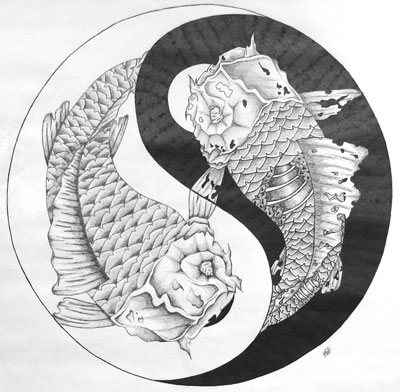All Nonfiction
- Bullying
- Books
- Academic
- Author Interviews
- Celebrity interviews
- College Articles
- College Essays
- Educator of the Year
- Heroes
- Interviews
- Memoir
- Personal Experience
- Sports
- Travel & Culture
All Opinions
- Bullying
- Current Events / Politics
- Discrimination
- Drugs / Alcohol / Smoking
- Entertainment / Celebrities
- Environment
- Love / Relationships
- Movies / Music / TV
- Pop Culture / Trends
- School / College
- Social Issues / Civics
- Spirituality / Religion
- Sports / Hobbies
All Hot Topics
- Bullying
- Community Service
- Environment
- Health
- Letters to the Editor
- Pride & Prejudice
- What Matters
- Back
Summer Guide
- Program Links
- Program Reviews
- Back
College Guide
- College Links
- College Reviews
- College Essays
- College Articles
- Back
Trouble with ABCs
“Are you deaf or dumb?” a Chinese man spat at me.
I was a chubby-cheeked seven-year old girl on my first family visit to China. While this stranger was trying to talk to me, all I was hearing was, “Ni long huo ya ma?” He didn’t know that I couldn’t speak Chinese. My appearance was 100% Chinese, but my thoughts rattled in English. As the banana comparison goes, I was yellow on the outside, white on the inside. Though my parents were both born and raised in China, I was born in the United States of America which made me American-born Chinese – ABC.
Throughout our trip to China, my parents carted my sister and me to reunion after reunion where we met our relatives for the first time. But each gathering progressed similarly: my grandparents, aunts, uncles, and cousins would eagerly approach me, speak to me, and watch me, waiting for a reply. As I racked my brain for something to say, English words would readily come to mind, but not a single Chinese word. I would stare back silently, offering a demure smile. My relatives would sigh but reassuringly smile.
Though I could never speak Chinese, Chinese culture became a part of my home life while I grew up in the United States. Each month on a weekend, my family took a trip to the Chinatown in Philadelphia for fresh Chinese vegetables (that, according to my mom, tasted better than American vegetables) and for my dad’s haircuts (because he trusted only Chinese barbers). Each night, my mom cooked homemade Chinese dinners with dishes like spicy tofu and stir-fried baby bok choy served with fresh white rice. Then, after dinner, my sister and I would lie in bed beside our mom and listen to her stories about growing up in China.
Outside of my home, I was drawn more towards American culture than towards Chinese culture. As a child, I noticed that I looked different from the other kids in my neighborhood. While their heritage stemmed from the grandeur and sophistication of Europe, my culture included squinty-eyed people making peace signs in all of their pictures, “Engrish” speakers, and freakish child prodigies (not to mention their maniacal parents). Being Chinese embarrassed me, so I shied away from my culture, trying to shake off the skin that was inextricably mine.
Here I was, caught in a crevice between two clashing cultures. My family’s Chinese heritage was half of my identity, while my friends’ American life comprised the other half. In my mind’s cultural war, I had to decide where I would stand: on the Chinese side or on the American side.
While spending a summer in Washington, D.C, before my junior year in high school, my friend, the son of my mother’s long-time college friend, invited me to the Asian Festival which was a two-day event celebrating all Asian cultures. Though I was reluctant to go at first, I wanted to see my friend who was scheduled to perform at the festival. Within the crowd of black-haired, yellow-skinned people listening to the music and wandering among the booths that lined the field, I finally located him with his mom. Like me, my friend was an ABC, but as he spoke to his mother in Chinese, he seemed absolutely at ease. I talked to her in English. Together we waited for my friend’s performance to start.
At last, with his guitar slung around his shoulder, my friend ascended onto the stage. He would be playing a set of traditional Chinese songs, singing in Chinese while accompanying himself on guitar. Before when I heard Chinese music, I cringed at the way the short, blunt words sounded. But, as my friend plucked his guitar and began to sing in a clear, unwavering voice, his words resonated within me like an ancient gong tolling from the past. As I looked over at his mother, she was proudly gazing up at him, rocking from side to side, singing along with him. Gradually, I loosened up, until I blended into the sea of swaying listeners. Surrounded by other people celebrating their Asian heritage, listening to my friend bring the beauty out of the Chinese language, I suddenly realized that it didn’t matter that I couldn’t understand the words he sang; I could still enjoy the music.
Though I will never be considered fully Chinese or fully American, I can take what I love most from each culture to relish for myself. I belong to both cultures. The crevice between my Chinese heritage and my American life has closed, and I am at ease where I stand, with one foot firmly planted on each side.

Similar Articles
JOIN THE DISCUSSION
This article has 0 comments.
